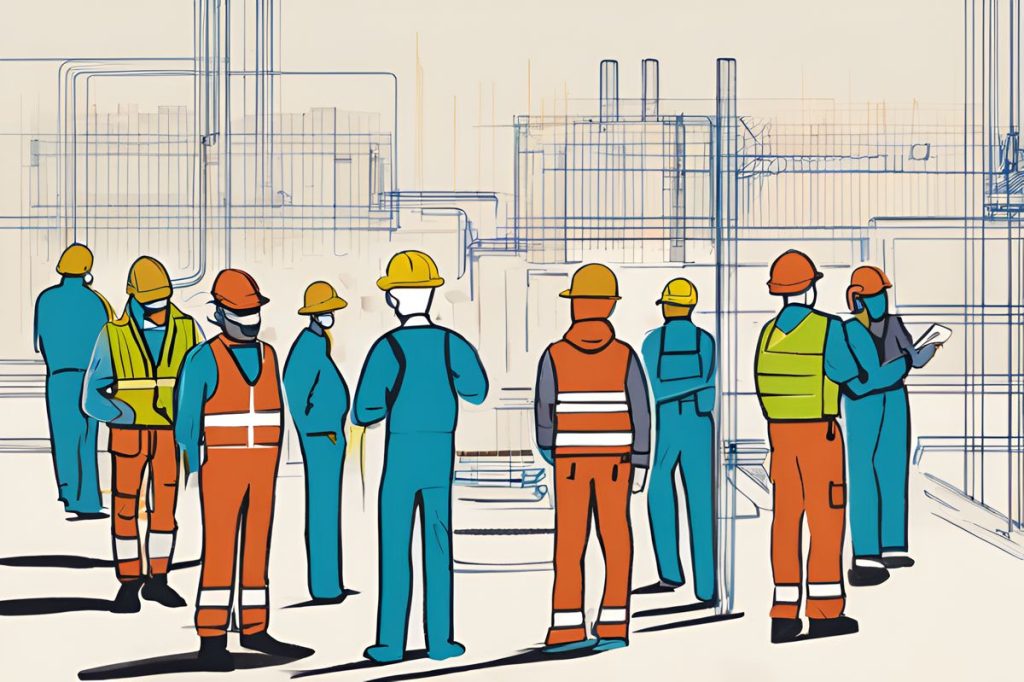Labour Ministers place paramount importance on ensuring safety and health in the workplace, emphasizing the non-negotiable value of human life through continuous improvement of safety standards and collaboration with insurance companies. This commitment aligns with global initiatives of organizations like the ILO, highlighting the ongoing effort to foster a culture of prevention and prioritize workers’ well-being worldwide.
What is the priority for Labour Ministers regarding workplace safety?
Labour Ministers prioritize the non-negotiable value of human life by ensuring safety and health in the workplace. They are committed to continuously improving safety standards, strengthening institutional frameworks, and fostering a culture of prevention. This involves collaboration with insurance companies and adherence to international labor organizations’ goals like those of the ILO.
The Non-Negotiable Value of Human Life
Labour Minister Yiannis Panayiotou recently conveyed the critical nature of safety and health in the workplace. At an event organized by the Department of Labour Inspection and a major insurance company, the Minister articulated that the value of human life stands as a non-negotiable priority. His remarks came in anticipation of the World Day for Safety and Health at Work, an occasion that underscores the universal importance of maintaining a secure and healthy work environment.
Yiannis Panayiotou emphasized that occupational safety and health are at the very heart of human existence. He stressed the need for continual improvement of work safety and health standards, reflecting the evolving societal expectations to safeguard workers. This commitment to development is a reflection of a global trend in labor policies, where governments increasingly prioritize the well-being of their citizens within the work sphere.
Strengthening Institutional Frameworks
In his address, Panayiotou reiterated the government’s pledge to bolster the institutional frameworks and mechanisms of the labor ministry. This dedication to enhancing workplace safety protocols demonstrates an understanding that effective policies must evolve alongside the changing landscapes of industry and technology. The Minister’s commitment reflects a broader movement within labor ministries worldwide to adapt and improve conditions for workers in an ever-shifting economic environment.
Governments are recognizing that the protection of workers is not just about compliance with laws and regulations, but also about fostering a culture of safety. Initiatives often include investing in education and training, improving monitoring and enforcement of safety standards, and encouraging the adoption of best practices in various industries.
The Role of Insurance in Workplace Safety
Insurance companies have a vested interest in promoting workplace safety, as reducing the number of accidents can lead to fewer claims and lower costs. Through co-operation with government agencies, insurance providers can play an instrumental role in supporting the development and implementation of safety programs. These programs can range from providing financial incentives for businesses that reduce workplace hazards to offering resources and expertise on safety management.
By partnering with labor departments, insurance companies can contribute to a decrease in work-related injuries and illnesses. This collaboration benefits not only workers and their families but also employers and the broader economy, as it helps to minimize the financial impact associated with workplace accidents.
Continuous Improvement as the Ultimate Goal
The philosophy of continuous improvement in workplace safety standards aligns with international labor organizations’ goals, such as the International Labour Organization (ILO). The ILO advocates for the creation of a culture of prevention on occupational safety and health. The remarks made by the Labour Minister echo the sentiment that safety in the workplace is an ongoing process that requires constant vigilance, innovation, and commitment from all stakeholders involved.
The Minister’s statements serve as a reminder of the collective responsibility shared by governments, employers, and workers to strive for a world where every individual has the right to a safe and healthy working environment. It is through this collaborative effort that the highest safety standards can be set and maintained, thereby honoring the inherent value of every human life.
What is the priority for Labour Ministers regarding workplace safety?
Labour Ministers prioritize the non-negotiable value of human life by ensuring safety and health in the workplace. They are committed to continuously improving safety standards, strengthening institutional frameworks, and fostering a culture of prevention. This involves collaboration with insurance companies and adherence to international labor organizations’ goals like those of the ILO.
How can insurance companies contribute to workplace safety?
Insurance companies can play a crucial role in promoting workplace safety by collaborating with government agencies to support the development and implementation of safety programs. These initiatives may include offering financial incentives for businesses that reduce hazards, providing resources and expertise on safety management, and ultimately contributing to a decrease in work-related injuries and illnesses.
Why is continuous improvement essential in workplace safety?
Continuous improvement is essential in workplace safety as it aligns with international labor organizations’ goals like those of the ILO, which advocate for a culture of prevention in occupational safety and health. The philosophy of continuous improvement underscores the need for ongoing vigilance, innovation, and commitment from all stakeholders to maintain the highest safety standards and prioritize workers’ well-being.
How do Labour Ministers aim to strengthen institutional frameworks for workplace safety?
Labour Ministers aim to strengthen institutional frameworks for workplace safety by enhancing policies, mechanisms, and protocols within the labor ministry. This demonstrates an understanding that effective safety measures must evolve alongside industry and technological advancements. Through this commitment, governments seek to foster a culture of safety, invest in education and training, improve monitoring and enforcement of standards, and encourage the adoption of best practices in various industries.

